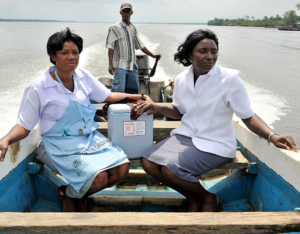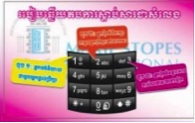 Another factor to consider in identifying determinants is the stage of service delivery.
Another factor to consider in identifying determinants is the stage of service delivery.
Although internal and external factors may impact the specific determinants throughout the three stages, the determinants that have an impact on initial health-seeking behavior are often different from those that limit effective counseling during the clinical encounter and those that may affect ongoing follow-up and long-term behavioral maintenance.
This I-Kit includes illustrative case studies describing how determinants linked to internal and external barriers have been addressed in each of these three stages:
- Addressing key barriers in the Before stage to get clients to voluntary medical male circumcision services in Zimbabwe
- Addressing client/provider challenges During HIV counseling services in Kenya
- Addressing challenges in the After stage with maintenance and follow up for maternal and child health services in Bangladesh
 After Services highlight: In Cambodia, the MOTIF Project, implemented by LSHTM and MSI, used mobile phone messages to increase FP use after abortion. Clients received an automated, interactive voice message with counselor phone support every two weeks, for a total of six messages. Clients could also call in to the call center to enable interactive discussions as desired. The intervention increased contraceptive use at 4 months and also overall LARC use.
After Services highlight: In Cambodia, the MOTIF Project, implemented by LSHTM and MSI, used mobile phone messages to increase FP use after abortion. Clients received an automated, interactive voice message with counselor phone support every two weeks, for a total of six messages. Clients could also call in to the call center to enable interactive discussions as desired. The intervention increased contraceptive use at 4 months and also overall LARC use.

